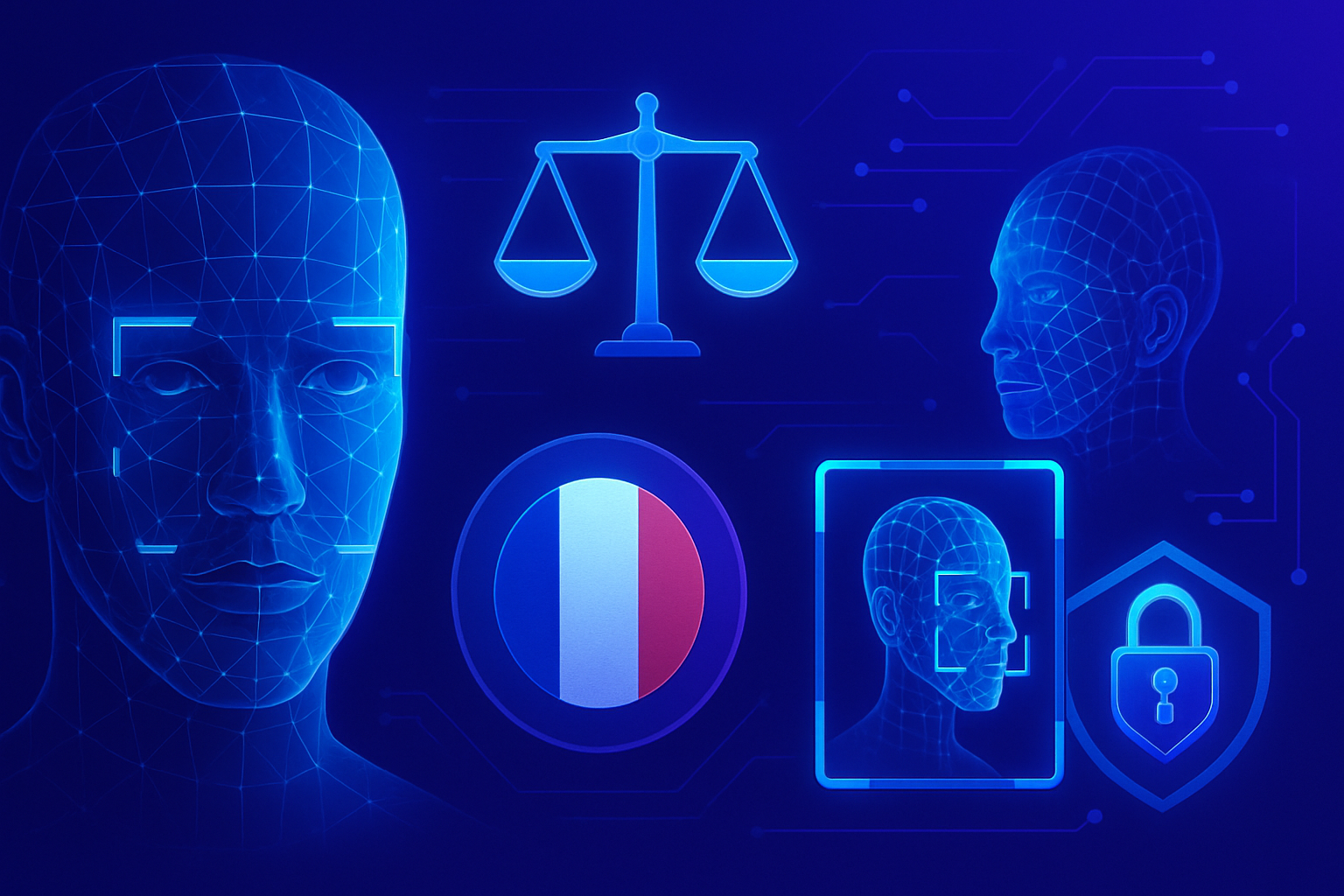Facial recognition is gradually transforming human interaction with contemporary technologies. Against a backdrop of ethical challenges, this technology raises profound questions about the boundary between security and privacy. European and French legislation, rooted in a rigorous legal framework, seeks to prevent abuses while allowing certain legitimate uses.
Practical uses are multiplying, from airports to phone applications, but also face strong resistance. Surveillance, viewed by some as a necessity, remains circumscribed by precise restrictions, prohibiting any intrusive drift.
In the face of this dynamic reality, the stakes of facial recognition in France require a deep understanding of the associated legal and societal implications.
Facial recognition: legal framework in France
Facial recognition in France is framed within an particularly strict legal framework. European legislation, notably the GDPR, generally prohibits the processing of biometric data without pre-established exceptions. These exceptions include explicit consent, vital emergency, or a major public interest.
In professional and private contexts, consent may prove insufficient as a legal basis due to subordinate relationships. Other grounds, such as legitimate interest or a legal obligation, must then be considered. In terms of sovereign control, the framework is even more constrained. It is essential that any biometric processing is provided for by law or decree, following the opinion of the CNIL.
Current uses of facial recognition
The practical applications of facial recognition in daily life are diverse, though limited. At borders, for example, the automatic PARAFE gates allow for rapid and secure authentication. Users and travelers support this system, appreciating its ability to streamline passage without overly interfering with liberties.
Another observed use involves post-event identification by law enforcement. Investigators utilize the TAJ file, comparing images captured post-offenses with a database of millions of photos. This process, validated by the Council of State in 2022, nonetheless sparks controversies regarding the nature of discreet surveillance.
In the private sector, facial recognition is becoming widespread. For instance, some banking apps are replacing PIN codes with this technology. Personal data remains stored locally, and activation is at the user’s discretion. More recently, the Proman group introduced Izicheck, utilizing selfies for instant identity verification.
Existing restrictions
Real-time facial recognition in public spaces remains formally prohibited. Experiments that took place, such as those in PACA high schools, were deemed illegal by the CNIL. This position also extends to companies like Clearview AI, penalized for unauthorized scraping of millions of online photos.
France opposes any form of generalized or non-consensual surveillance. No camera equipped with facial recognition can be systematically installed in public places, and no wild collection of biometric data will be tolerated. Thus, there is no biometric surveillance system in educational or professional settings.
Future of facial recognition
The legislative future concerning facial recognition is shaping up with the AI Act, which France will have to fully integrate. This legislation will impose clear definitions regarding exceptions, application durations, and competent oversight authorities.
Technological advancements in this field continue to evolve, with ongoing improvement in accuracy rates. However, disparities remain depending on individual profiles, particularly concerning gender and skin tone. This need for ethical monitoring is accompanied by a call from NGOs to strengthen legal safeguards before any mass adoption.
The social landscape may envision acceptance of facial recognition when its framework is perceived as rigorous and transparent. A misstep, however, could rekindle societal concerns about algorithmic surveillance, and public authorities are acting with discernment in this sensitive area.
Common questions about facial recognition in France
What is facial recognition and how does it work?
Facial recognition is a technology that uses artificial intelligence algorithms to identify or authenticate a person by analyzing and comparing the features of their face to a database of images.
What are the main laws governing facial recognition in France?
In France, facial recognition is governed by the GDPR, which prohibits processing of biometric data, including faces, except for exceptions. In addition, the law imposes strict conditions for implementing such technology in sovereign uses.
What are the authorized uses of facial recognition in France?
Authorized uses include authentication in contexts such as automatic gates at borders and post-event identification by law enforcement, but only under specific conditions and according to strict protocols.
What restrictions exist regarding the use of real-time facial recognition?
The use of real-time facial recognition in public spaces is prohibited in France, except for exceptional cases such as terrorism, requiring the approval of a judicial authority.
How can a person give consent for the use of facial recognition?
Consent must be explicit and informed. In a professional setting, this consent may encounter difficulties, especially regarding subordinate relationships.
What are the consequences of failing to comply with facial recognition legislation?
Companies or organizations that do not comply with the legislation may face penalties, including significant fines and restrictions on the use of their technologies.
Can facial recognition be used in schools?
Currently, facial recognition in educational institutions has been deemed illegal by the CNIL, and any experimentation in this context is strictly prohibited.
What is the impact of the European AI Act on facial recognition in France?
The AI Act introduces additional regulations for the use of artificial intelligence, particularly for facial recognition, by specifying the conditions of use and reinforcing the legal framework to be respected.
Are personal data collected via facial recognition secure?
The security of the data depends on the protection measures implemented by the organizations deploying facial recognition. However, according to the GDPR, strict standards for data protection must be adhered to.
Does this mean facial recognition will soon be ubiquitous in France?
While technology is advancing, current legal restrictions and increased oversight limit its deployment. The future of facial recognition will depend on legislative developments and societal acceptance of this technology.






